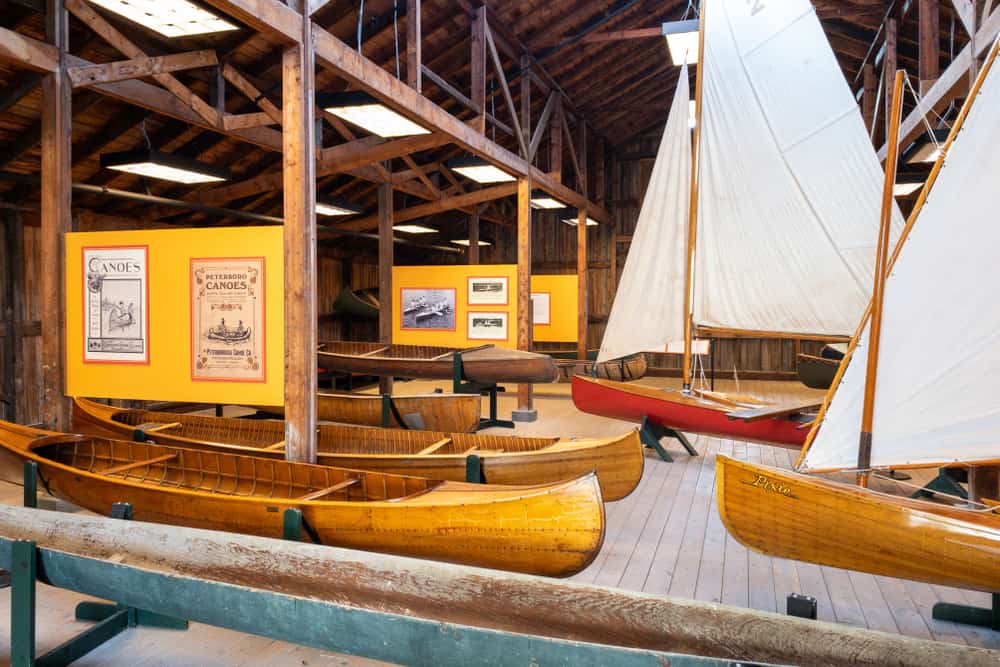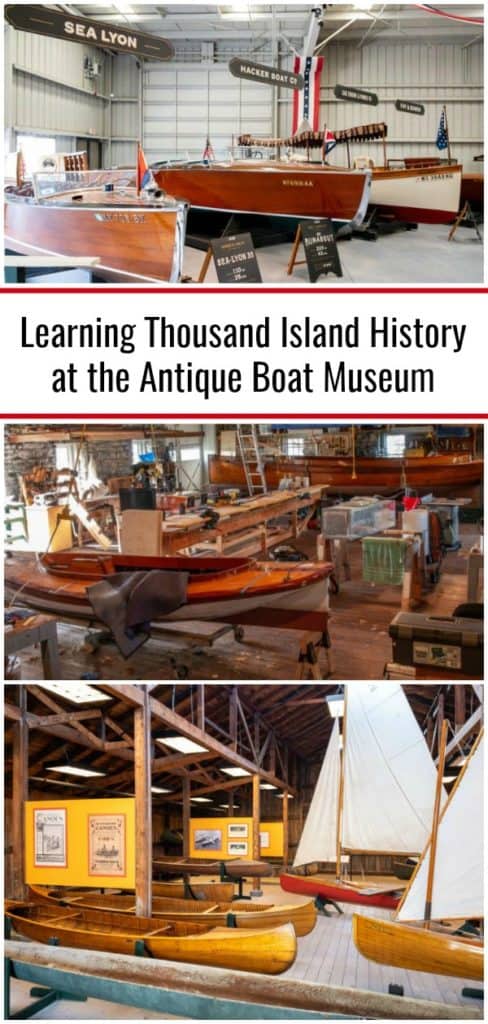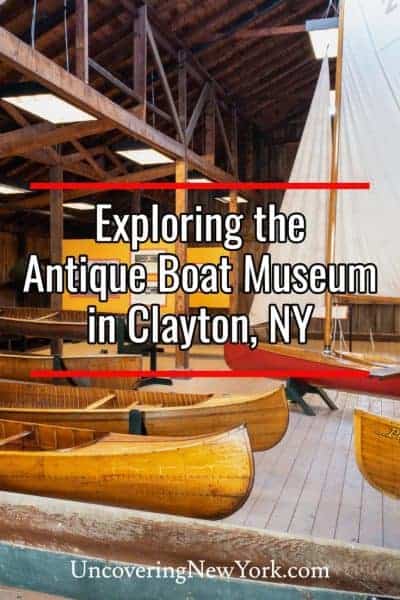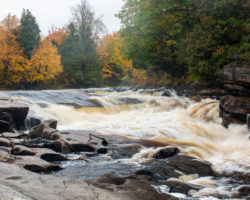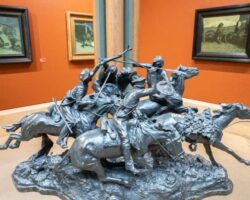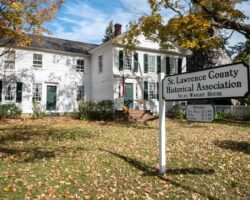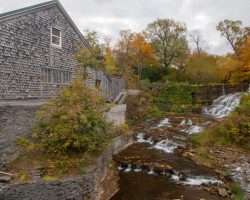Thanks to the incredibly beautiful St. Lawrence River and its many amazing islands, the Thousand Islands region of New York has a rich boating history.
Wanting to learn more about the impact this mode of transportation had on the region, I recently visited the Antique Boat Museum in Clayton, New York.
The Antique Boat Museum traces its roots back nearly 60 years, and its permanent museum collection opened in the 1970s. The museum highlights the different variety of boats that have been used by residents of the region from Native American canoes to racing boats.
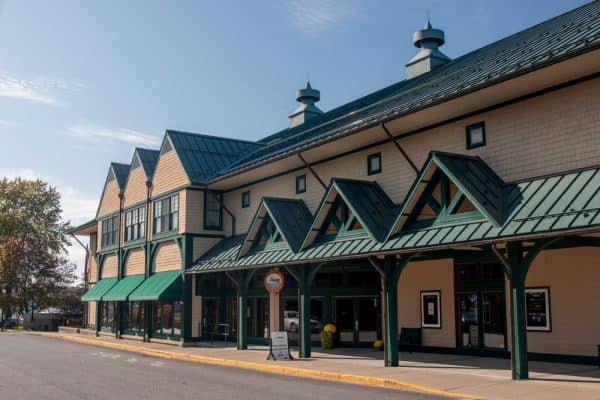
Having never been to an entire museum dedicated to antique boats, I was surprised to find how similar it felt to the many antique car, airplane, and train museums I’ve previously visited in my travels. If you love antique machinery, this a great museum to visit even if you know little about boats or have already visited the Finger Lakes Boating Museum.
The museum consists of five different buildings along the shores of the St. Lawrence River. Each building offers a different exhibit, so I definitely recommend checking each out.

The first building, which is also where you get your ticket and souvenirs, features a great overview of the history of the Thousand Island region and offers an intro to the boating culture here.
There are three large rooms of displays here, and it’s easy to miss the one about boating in the winter (which is quite interesting) due to the layout of the entrance, so make sure you see them all.
Once you have a good overview of the region, there are four exhibit areas spread around the grounds that feature antique boats, as well as a workshop. Exactly which order you do the buildings in doesn’t matter, so visit them in the order that seems most logical to you.
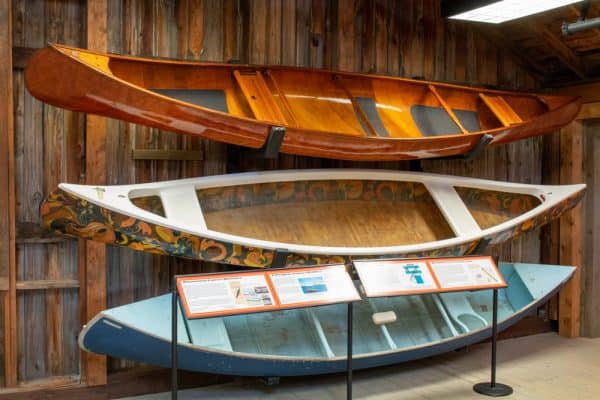
For me, my second stop was the Small Craft Building, which, not surprisingly, featured a variety of small watercraft including canoes, sailboats, and skiffs. The boats here date back to the mid-1800s and include several dugout canoes built by Native Americans.
Probably the highlight of this area is the display on the unique St. Lawrence Skiff. While it largely looks similar to other types of boats (at least to my untrained eye), it was specially designed to be light enough to row easily, but yet sturdy enough for the sometimes choppy waters of the river.
This exhibit space features some great information on these beautiful boats, meaning you can spend a long time studying every boat or simply enjoy a quick overview of the pieces here.

The next area in the museum is the Stone Building. This is the oldest of the museum’s buildings and was completed in 1886. Originally, it housed a steam boiler for the woodworking mill that once stood on this site.
Today, the Stone Building is home to the museum’s workshop. It’s here that volunteers work to maintain and restore the boats in the museum’s collection. While I wasn’t lucky enough to see anyone working during my visit, it was still neat to see the tools that are used to restore boats as well as to read the signage around the building about how boats are built, maintained, and restored.
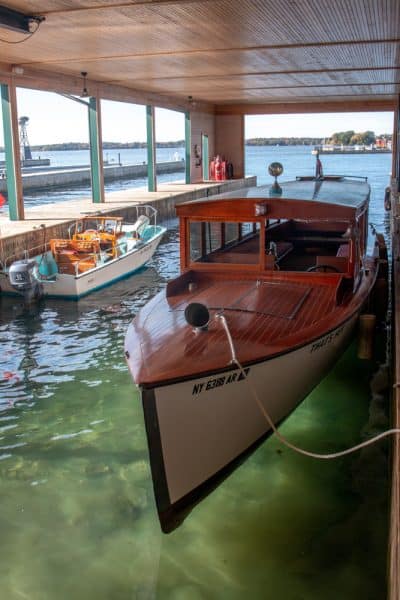
Just beyond the Stone Building is the Yacht House. Despite this being a boat museum, this is the only area of the museum where boats are actually showcased in the water. If you aren’t familiar with the clarity of the St. Lawrence River, it’s truly amazing to look down below the boats at the crystal-clear water.
There are only a handful of boats in the Yacht House, but these are some of the most beautiful and notable pieces in the entire collection.
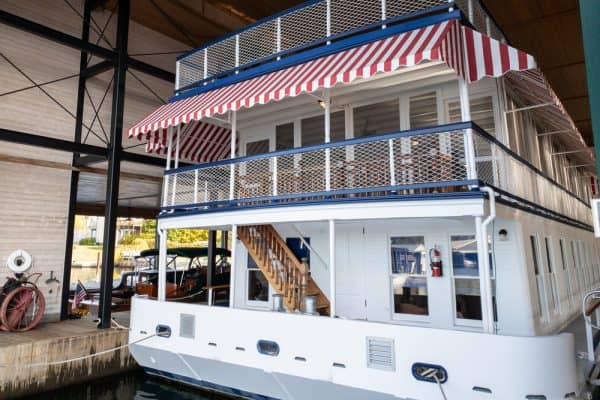
The highlight is the La Duchesse, an incredibly large two-story houseboat that was built in 1903 for George Boldt. Boldt stored the houseboat in his yacht house at his famous Boldt Castle. However, the boat eventually sank to the bottom of the river. Fortunately, it was rescued, and now sits incredibly restored at the museum.
While the boat can be seen from the outside and you can even peer into a few first-floor rooms through the windows, tours of the boat are an additional cost and not included in the base admission to the museum.
Just behind the Yacht House is the Dodge Building. This space features an exhibit called The National Motor Boat Show.

This exhibit is set up like you might have seen at The National Motor Boat Show in New York City, which has been held annually since 1905. However, the boats here are all from different years as opposed to all being from just a handful of years.
Walking through this exhibit is really interesting as the boats here are all in incredibly beautiful condition, though the signs only offer basic information like year, model, and original price. A bit more information about the history of each piece would have been great.
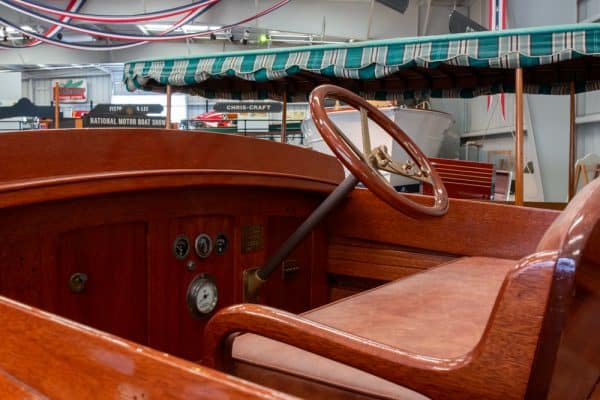
My favorite part is that there are two larger yachts that you can climb aboard and experience what they are like from the inside. You can even go below deck to see what the cabin space is like.
Interestingly, the last exhibit building at the Antique Boat Museum in Clayton, NY is located across the street from the main museum displays near Wood Boat Brewery.
This is the Morgan Building and houses the Quest for Speed exhibit.
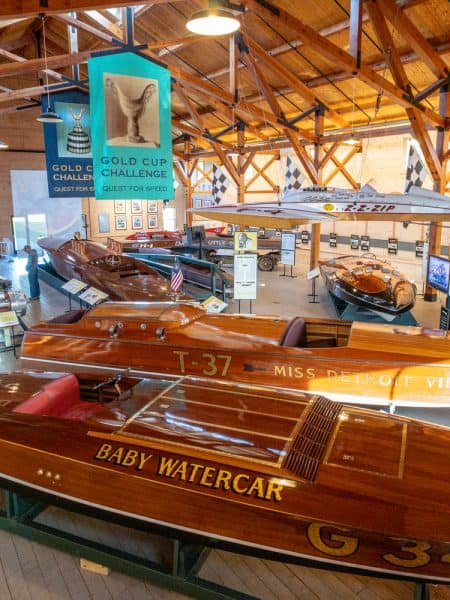
This exhibit is all about motorboat racing and features some incredible watercraft that are unlike anything I’ve ever seen in person. It’s a lot of fun walking through this space and seeing how speedboat designs have changed over the years and learning more about boat racing.
For those who are looking for experiences beyond the exhibits, there are several additional things you can do at the museum. In addition to the aforementioned guided tours of La Duchesse, the museum also offers rides in an antique motorboat for an additional cost as well as free rowing and sailing boats in the summer months.
(You can also take less adrenaline-inducing boat tours of the river at Clayton Island Tours and at Uncle Sam Boat Tours in Alexandria Bay.)
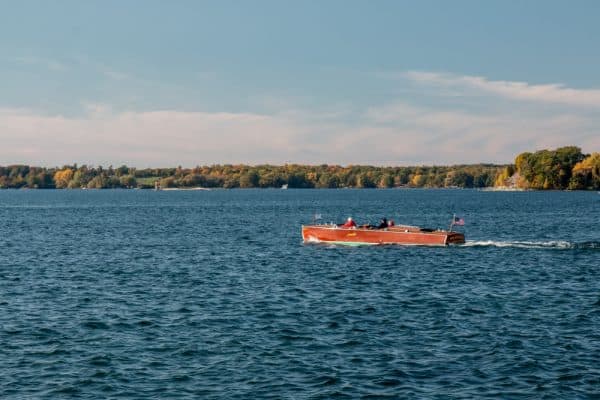
Overall, I really enjoy the Antique Boat Museum in Clayton, New York. Even knowing nothing about the history of boats and the boating industry, I found it had enough information to keep me interested, while also providing some great details for those that are antique boat aficionados.
If you love looking at antique automobiles or simply enjoy history, you won’t want to miss this great museum in Jefferson County.
Note: My visit to the Antique Boat Museum was hosted by the site. However, the opinions expressed my own.
Looking for more places to visit in the area? Check out Tibbetts Point Lighthouse, the Frederic Remington Art Museum, Burrville Cider Mill, and Fort Stanwix.

